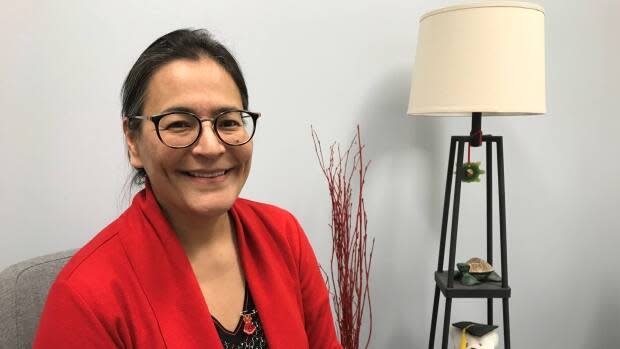MMIWG inquiry commissioner Michèle Audette appointed to Senate

Celebrated Indigenous women's rights advocate Michèle Audette was named to the Senate Thursday.
In a statement, Prime Minister Justin Trudeau announced that Governor General Mary Simon appointed five new senators to fill vacancies across the country.
Audette, a former commissioner responsible for conducting the National Inquiry into Missing and Murdered Indigenous Women and Girls (MMIWG), was one of three Quebecers named, along with businesswoman Amina Gerba and economist Clément Gignac.
Born to a Quebecer father and Innu mother who co-founded the Quebec Native Women association in 1974, Audette comes from the Innu community of Uashat mak Mani-Utenam in Quebec. She went on to be elected president of Quebec Native Women at age 27.
Since serving as commissioner for the MMIWG inquiry, she has worked as assistant to the vice-rector of academic and student affairs and senior advisor for reconciliation and Indigenous education at the Université Laval.
Audette also received the Queen Elizabeth II Diamond Jubilee Medal in 2012 for her significant contribution to women's rights.
CBC Montreal's Sharon Yonan-Renold spoke with Audette about her appointment.
Below is an excerpt of their conversation. The questions and answers have been edited for clarity.
Q: How do you feel about becoming a senator?
A: The first time I mentioned [possibly becoming a senator,] I was 28 years old. I was elected President of Quebec Native Women and we participated in a few standing committees in Ottawa, of course, and some of our mentors were helping us to go through some legislation amendments and it was to the Senate. So, stubborn as I was, it started there. I said if [senators] have a little or a big power to change or refuse an amendment or add something to improve our quality of life, I want to get there one day.
Q: How do you think your experience and identity will serve you in this new role?
A: I'm a fighter in a good way. I don't give up easily so I guess this is the energy that I will bring, where I feel like I am free, where I can speak my mind, and my spirit and my heart. Plus, I'm surrounded by amazing mentors across Canada so if I'm not sure, I know I can pick up the phone or text or speak to somebody so my voice won't be only my voice but surrounded and fed by amazing people I met.
Q: How do you envision the transition to the Senate?
A: I think it's going to be natural. It's going to be something that flows in my blood. The more we are everywhere to influence, to advocate, to shake up old ways of doing things, the more we have Indigenous people in those strategic spaces, and today for me it was the Senate, I think I have to honour that everyday.
Q: Why is it important for more Indigenous women like you to be in positions of leadership?
A: There are two things that are very special for me. I never finished university. I have five kids: young adults and young teenagers. I don't want them to have the same path that I had with the trauma etc. I want them to have the choice to say 'yes, I want to finish school and go further in education' so for me, it's a top priority of course. My mother is a co-founder of Quebec Native Women, and my mentors are amazing women across Canada. It's how we will continue what they started.

